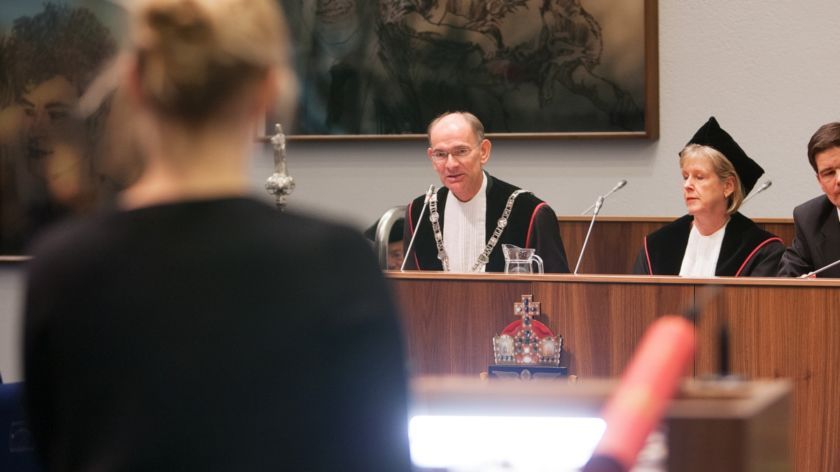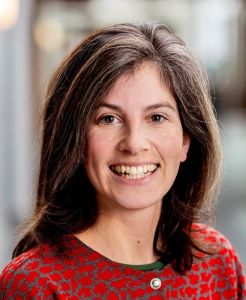Radboud Young Academy: ‘Involve young researchers more in Recognition and Rewards’
-
 Afbeelding ter illustratie. Foto: Dick van Aalst
Afbeelding ter illustratie. Foto: Dick van Aalst
Not just tallying publications, but also judging scientists based on other accomplishments, that is the future of the 'Appreciation and Rewards' programme. However, each faculty interprets this differently, the Radboud Young Academy notes with concern.
Faculties must be careful not to reinvent the wheel now that they are making concrete plans to appreciate and reward employees more broadly. That is the warning of the Radboud Young Academy (RYA). The think tank consisting of employees who have recently obtained their PhD also wants young researchers to be involved in the implementation.
The topic of ‘Recognition and Rewards’ has kept the academic community occupied since 2019, when the universities, together with the Royal Netherlands Academy of Arts and Sciences (KNAW) and grant providers such as the Dutch Research Council (NOW), founded a collaborative programme with that name. The plan: instead of tallying (excellent) publications and obtained grants, other academic accomplishments should henceforth also be considered when appointing or promoting scientists. Think of teaching, collaborations, and committee work. For instance, an academic career with a focus on teaching should also become a real option.
‘Since the vision document was published, it’s been quiet’
What that should look like in practice, in terms of assessment criteria, is up to the institutions themselves. In Nijmegen, a university-wide committee led by professor Paula Fikkert drew up a vision document last autumn, partly with input from the RYA. Faculties can now decide for themselves how to implement this in concrete terms.
And that is where things could go wrong, fears the RYA, which therefore drew up a list with points of attention. RYA members Femke Bekius and Daniela Patru (both working at the Nijmegen School of Management) explain.
What are your concerns?
Bekius: ‘Currently, faculties are each going their own way. As a result, you can see they are out of sync with each other; some are already much further along than others. For example, the Faculty of Social Sciences has already worked out different career paths, for research and teaching. At other faculties, employees do not yet know at all where they stand. Such local implementation is strange: there are national agreements and a Radboud-wide vision for a reason. There should be much more central control, or at least more exchange between faculties.’
Patru: ‘Faculties should learn from each other. Maybe there is mutual consultation going on, but that is currently not visible to the outside world.’
Bekius: ‘As a result, many people still don’t know what to focus on. Since the vision document was published (September last year, ed.), it has been quiet. For the time being, should I invest a lot in both research and education as well as impact? This uncertainty increases the pressure they experience, while Recognition and Rewards should actually relieve that pressure. That is rather paradoxical.’
Patru: ‘That is why we think it is important to express our concerns now. Young researchers form a large part of the staff at the faculties. The plans also concern them the most.’
You also see a large gap between theory and practice. The ‘holistic story’ could use more concrete frameworks, you write on your website.
Patru: “True. Take team science for example, that should become more important. But researchers are of course already working together on projects now. The question is mainly, how do you value that? How do you make sure people are recognised for their contribution?’
Bekius: ‘You could, for example, include team science as an item for discussion in the annual appraisal. That’s not mentioned on that form at all now. But perhaps even more important is that this appreciation takes place in practice. Traditionally, the focus is on the outcomes of research, while the process also requires recognition. This is how you get the culture change that Recognition and Rewards aims for. Ultimately, people then also take over tasks from each other more quickly, for instance when somebody has a lot on their plate.’
Because they know that will also be appreciated?
Bekius: ‘Exactly. It’s part of the job. You start thinking less about yourself and your own tasks, and more about the team. That also requires good role models, making young researchers think: that’s how it can be done too.’
‘What we think is important is that, as an employee, you can make clear agreements on what you will be judged on. For example, that it does not work against you if you have not applied for a research grant, because your manager knows: she was very busy this year with educational innovation and that fits her career plan.’
Patru: ‘Those kinds of narratives need to settle well into the minds of supervisors. It is about changing expectations and formulating concrete frameworks for that. For instance, the start-up and incentive grants are wonderful tools to reduce workload. After all, researchers then have to apply for less competitive personal grants from NWO or ERC, such as a Vidi. However, if the expectations within the institution are still that you do external acquisition, and that also counts towards promotions, nothing will change.’
Translated by Jan Scholten





